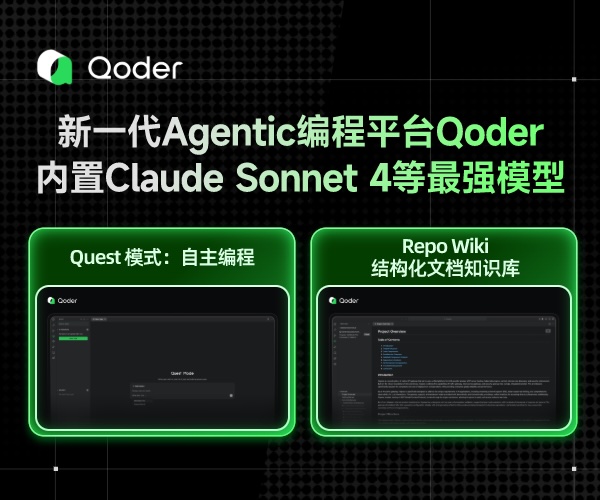python jenkins注册脚本(zip,tgz,war之类解压缩,http请求)
#!/usr/local/python # -*- coding: utf-8 -*- import logging import requests import argparse import sys import os import traceback import json import shutil import tarfile import zipfile ################################################################# # Custom define area, modify the follow parameter when necessary ORG = DEPLOY_REPO_IP = '' DEPLOY_REPO_HOST = '' DEPLOY_REPO_ENS = '' DEPLOY_IP = '' DEPLOY_HOST = '' HEADER = { 'org': ORG, 'user': 'defaultUser', 'Host': '', } ################################################################# # Set the logger FORMAT = '[%(asctime)s %(filename)s(line:%(lineno)d) %(levelname)s] %(message)s' logging.basicConfig(format=FORMAT) logger = logging.getLogger('log') logger.setLevel(logging.DEBUG) # Receive a package_id by name def receive_package_id(name,PACKAGE_TYPE): url = 'http://{ip}/package/search'.format(ip=DEPLOY_IP) params = { 'page': 1, 'pageSize': 500, 'name': name, 'type': PACKAGE_TYPE, } package_id = '' headers = HEADER.copy() headers['Host'] = DEPLOY_HOST resp = requests.get(url, params=params, headers=headers) if resp.status_code == 200: data = resp.json()['data'] for package in data['list']: if package['name'] == name: package_id = package['packageId'] return package_id def get_config_lastversion_id(package_id): headers = HEADER.copy() headers['content-type'] = 'application/json' headers['Host'] = DEPLOY_HOST url = 'http://{DEPLOY_IP}/version/list'.format(DEPLOY_IP=DEPLOY_IP) params_dict = { "packageId":package_id, 'page': 1, 'pageSize': 500, 'order':'ctime desc' } resp = requests.get(url=url, params=params_dict, headers=headers, timeout=30) if resp.status_code == 200: data=resp.json()["data"]["list"][0] last_config_version_id=data["versionId"] return last_config_version_id def un_tar_gz(file_name, extract_path): """ un.tar.gz :param file_name: compressed package path 压缩包路径 :param extract_path: decompression target path 解压路径 :return: """ if os.path.isdir(extract_path): pass else: logger.error('{path} not exists'.format(path=extract_path)) tar = tarfile.open(file_name) names = tar.getnames() for name in names: if not str(name).endswith(".conf.yaml"): tar.extract(name, path=extract_path) tar.close() def tar_gz(file_name,tmp_tar_dir,tmp_dir): """ 打包不带绝对路径 :param file_name: packaged name :param tmp_tar_dir: compressed package deposit directory 压缩包存放路径 :param tmp_dir: packaged directory 压缩文件路径 :return: """ tar = tarfile.open(os.path.join(tmp_tar_dir,file_name),"w:gz") for root,dir,files in os.walk(tmp_dir): root_dir = os.path.relpath(root,start=tmp_dir) for file in files: full_path = os.path.join(root,file) tar.add(full_path,arcname=os.path.join(root_dir,file)) tar.close() def unpack_zipfile(filename, extract_dir): """Unpack zip `filename` to `extract_dir` """ if not zipfile.is_zipfile(filename): logger.error("%s is not a zip file" % filename) zip = zipfile.ZipFile(filename) try: for file in zip.namelist(): zip.extract(file, extract_dir) finally: zip.close() def move_file(source, destination,exclude=None): """ :param source: :param destination: :param exclude: :return: """ if os.path.isfile(source): path, name = os.path.split(destination) if not os.path.exists(path): os.makedirs(path) shutil.move(source, destination) elif os.path.isdir(source): file_dir=os.listdir(source) if exclude: file_dir.remove(exclude) for file in os.listdir(source): shutil.move(source + "/" + file,destination) else: logger.error("%s not exist!" % (source,)) def downlod_file(name, file): #download the file and repackage it pkg_name="dockerfile_{name}".format(name=name) pkg_id=receive_package_id(pkg_name,2) path=os.path.dirname(file) if not pkg_id: logger.error(u"can't find out the package_id of the package: {pkg_name}".format(pkg_name=pkg_name)) sys.exit(1) version_id=get_config_lastversion_id(pkg_id) if not version_id: logger.error(u"can't find out the version_id of the package: {pkg_name}".format(pkg_name=pkg_name)) sys.exit(1) url = 'http://{ip}/archive/{packageId}/{versionId}'.format(ip=DEPLOY_IP, packageId=pkg_id, versionId=version_id) headers = HEADER.copy() headers['Host'] = DEPLOY_REPO_HOST resp = requests.get(url, headers=headers, stream=True) if resp.status_code == 200: file_name = path + '/' + str(version_id) + '.tar.gz' with open(file_name, 'wb') as f: for chunk in resp.iter_content(chunk_size=512): if chunk: f.write(chunk) un_tar_gz(file_name, path + "/") os.remove(path + "/" + str(version_id) + '.tar.gz') destpath = os.path.join(path, str(version_id)) tar_file_name = "{version}.tar.gz".format(version=version_id) tar_file = "{file_path}.tar.gz".format(file_path=destpath) pkg_name = os.path.basename(file).split(".")[0] dest_path = "{destpath}/{name}".format(destpath=destpath, name=pkg_name) if os.path.basename(file).endswith(".jar"): #determine the package type shutil.copy(file,destpath) tar_gz(tar_file_name, path, destpath) shutil.rmtree(destpath) return tar_file elif os.path.basename(file).endswith(".war"): os.system("unzip -oq {file} -d {dest}".format(file=file,dest=destpath)) if os.path.isdir(dest_path): #determine first level directory move_file(destpath,dest_path,exclude=pkg_name) tar_gz(tar_file_name, path, dest_path) shutil.rmtree(destpath) return tar_file else: tar_gz(tar_file_name, path, destpath) shutil.rmtree(destpath) return tar_file elif os.path.basename(file).endswith(".tgz") or os.path.basename(file).endswith(".tar.gz"): un_tar_gz(file,destpath) if os.path.isdir(dest_path): move_file(destpath,dest_path,exclude=pkg_name) tar_gz(tar_file_name, path, dest_path) shutil.rmtree(destpath) return tar_file else: tar_gz(tar_file_name, path, destpath) shutil.rmtree(destpath) return tar_file elif os.path.basename(file).endswith(".zip"): unpack_zipfile(file,destpath) if os.path.isdir(dest_path): move_file(destpath,dest_path,exclude=pkg_name) tar_gz(tar_file_name, path, dest_path) shutil.rmtree(destpath) return tar_file else: tar_gz(tar_file_name, path, destpath) shutil.rmtree(destpath) return tar_file else: logger.error("unknown the compress type,please use jar,war,zip,tar.gz,tgz") sys,exit(1) else: logger.error(u"{0}download file failed-->>{1}".format(str(version_id) + '.tar.gz', resp.status_code)) sys.exit(1) # upload to remote deploy repository def archive(pkg_name, file_path, remark, unzip, strip_first): package_id = receive_package_id(pkg_name,1) if not package_id: logger.error(u"{file_path}: can't find out the package_id of the package: {pkg_name}".format( file_path=file_path, pkg_name=pkg_name)) sys.exit(1) # create the version if os.path.exists(file_path): params_dict = { 'packageId': package_id, 'message': remark, 'unzip': unzip, 'stripFirst': strip_first, } headers = HEADER.copy() headers['Host'] = DEPLOY_REPO_HOST url = 'http://{DEPLOY_REPO_IP}/archive'.format(DEPLOY_REPO_IP=DEPLOY_REPO_IP) try: fps = {'file': open(file_path, 'rb')} resp = requests.post(url=url, files=fps, data=params_dict, headers=headers, timeout=300) status_code = resp.status_code if status_code == 200: resp_format = resp.json() if resp_format.get('code', None) == 0: data = resp_format['data'] logger.info(u'{file_path}: create the version successful'.format(file_path=file_path)) return package_id, data else: message = resp_format.get('message', '') logger.error(u'{file_path}: create the version failed, reason: {message}'.format( file_path=file_path, message=message)) sys.exit(1) else: logger.error(u'{file_path}: create the version failed, status: {status}, message: {message}'.format( file_path=file_path, status=status_code, message=resp.text)) sys.exit(1) except: logger.error(u'{file_path}: create the version failed'.format(file_path=file_path)) logger.error(traceback.format_exc()) sys.exit(1) else: logger.error(u'{file_path}: the file is not exist'.format(file_path=file_path)) sys.exit(1) def register(file_path, package_id, version_info, version_type, name, remark): try: headers = HEADER.copy() headers['content-type'] = 'application/json' headers['Host'] = DEPLOY_HOST url = 'http://{DEPLOY_IP}/version/sign'.format(DEPLOY_IP=DEPLOY_IP) params_dict = { 'name': name, 'memo': remark, 'sign': version_info['sign'], 'source': { 'ip': DEPLOY_REPO_IP, 'port': 80, 'host': DEPLOY_REPO_HOST, 'type': 'http', 'ensName': DEPLOY_REPO_ENS }, 'versionId': version_info['id'], 'packageId': package_id, 'env_type': version_type } resp = requests.post(url=url, json=params_dict, headers=headers, timeout=30) if resp.status_code == 200: resp_format = resp.json() logger.info(u'{file_path}: register successful'.format(file_path=file_path)) else: logger.error(u'{file_path}: register failed, status: {status}, message: {message}'.format( file_path=file_path, status=resp.status_code, message=resp.text)) sys.exit(1) except: logger.error(u'{file_path}: register failed'.format(file_path=file_path)) logger.error(traceback.format_exc()) sys.exit(1) if __name__ == '__main__': parser = argparse.ArgumentParser(description='upload the version to the deploy_repository and register to the deploy') parser.add_argument('--pkg_name', type=str, help='define the name of the package') parser.add_argument('--file', type=str, help='define the path of the upload file') parser.add_argument('--remark', type=str, help='the remark of the version') parser.add_argument('--config_package', action='store_true', help='set it if it is a config package') parser.add_argument('--version', type=str, help='the name of the registered version') parser.add_argument('--version_type', type=str, choices=['dev', 'test', 'pre_release', 'prod'], help='the type of the registered version, default test') parser.add_argument('--unzip', action='store_true', help='decide the file to be zipped or not, default is unzipped') parser.add_argument('--donot_strip_first', action='store_true', help='decide if top directory should be ignored or not, default ignore') parser.add_argument('--dockerfile',type=str, default="false",help="upload the dockerfile") args = parser.parse_args() UNZIP = 'false' if args.unzip else 'true' STRIP_FIRST = 'true' if not args.donot_strip_first else 'false' if not args.version_type: args.version_type = 'test' # translate the version type if args.version_type == "prod": args.version_type = 15 elif args.version_type == "pre_release": args.version_type = 7 elif args.version_type == "test": args.version_type = 3 else: args.version_type = 1 def usage(): print (parser.print_help()) sys.exit(1) if args.pkg_name: PKG_NAME = args.pkg_name.decode('utf-8') else: logger.error('the name of the package must be defined') usage() if args.file: FILE = args.file else: logger.error('the path of the upload file must be defined') usage() if args.remark: REMARK = args.remark.decode('utf-8') else: logger.error('the remark of the version must be defined') usage() if args.version: VERSION = args.version.decode('utf-8') else: logger.error('the name of the registered version must be defined') usage() if args.dockerfile.lower()=="true": upload_file=downlod_file(name=PKG_NAME,file=FILE) # upload the file to remote deploy_repository package_id, version_info = archive(pkg_name=PKG_NAME, file_path=upload_file, remark=REMARK, unzip=UNZIP, strip_first=STRIP_FIRST) # register the version register(file_path=upload_file, package_id=package_id, version_info=version_info, version_type=args.version_type, name=VERSION, remark=REMARK) os.remove(upload_file) else: package_id, version_info = archive(pkg_name=PKG_NAME, file_path=FILE, remark=REMARK, unzip=UNZIP, strip_first=STRIP_FIRST) # register the version register(file_path=FILE, package_id=package_id, version_info=version_info, version_type=args.version_type, name=VERSION, remark=REMARK)
坚持到无能为力,拼搏到感动自己




 浙公网安备 33010602011771号
浙公网安备 33010602011771号